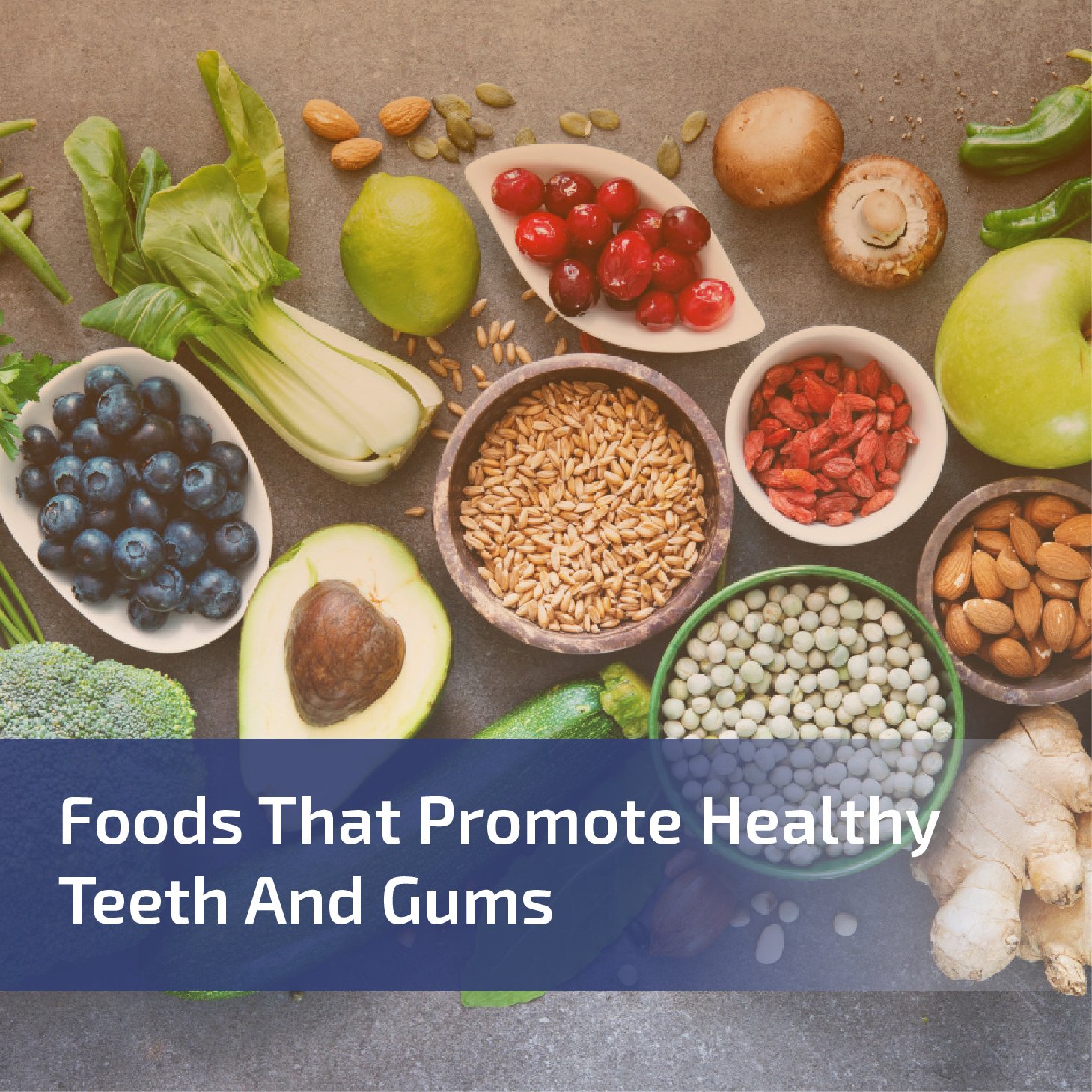
Maintaining good oral health is essential for overall well-being. While regular brushing and flossing are crucial, the role of nutrition in promoting healthy teeth and gums should not be underestimated. The foods we consume play a significant role in the strength and vitality of our teeth and gums.
In this article, we will explore a variety of foods that promote healthy teeth and gums, discussing their benefits and how they contribute to oral hygiene. From crunchy vegetables to calcium-rich dairy products.
Incorporating these foods into your diet can help promote healthy teeth and gums while reducing the risk of dental problems. Let’s explore some of the most beneficial options.
Foods Packed with Calcium
A strong foundation is vital for healthy teeth, and calcium plays an integral role in fortifying that foundation.
1. Dairy products:
Milk: A classic source of calcium, milk is often recommended for bone and dental health.
Cheese: Besides being calcium-rich, the act of chewing cheese increases saliva production, which can help neutralize acid.
Yogurt: Contains probiotics that benefit your gums by crowding out harmful bacteria in your mouth.
2. Leafy greens:
Spinach: Packed not just with calcium but also with folic acid, a type of B vitamin that has numerous health benefits.
Kale: A superfood known for its calcium and vitamin content.
Collards: Great for your teeth and overall health, they can be a tasty addition to your diet.
3. Fortified foods:
Almond milk and soy milk: Dairy-free alternatives that are often fortified with calcium.
Cereals: Many are fortified with calcium, making them a good option for breakfast.
Vitamin C-rich Foods for Gum Health
Vitamin C is renowned for its immune-boosting properties, but it is also essential for gum health. This vitamin helps prevent gum disease by strengthening the connective tissues that hold teeth in place.
1. Citrus fruits:
Oranges: Besides vitamin C, they’re rich in fiber and contain good amounts of calcium.
Grapefruits and lemons: High in vitamin C which can help in keeping gums healthy, but it’s important to rinse your mouth after to neutralize the acid.
2. Berries:
Strawberries: Rich in vitamin C, and antioxidants, and also act as a natural teeth whitener.
Raspberries and blueberries: Loaded with antioxidants and vitamin C, they’re great for gum health.
3. Vegetables:
Bell peppers: A crunchy, colorful source of vitamin C.
Broccoli: Loaded with vitamin C and also contains iron.
Brussels sprouts: While they might be divisive in taste, their health benefits, especially the amount of vitamin C, are undeniable.
Foods High in Phosphorus and Vitamin D
These nutrients are crucial for oral health, assisting in the absorption of calcium.
1. Seafood:
Salmon: Besides being an excellent source of vitamin D, it’s also rich in omega-3 fatty acids.
Sardines and cod: Packed with beneficial vitamins and minerals.
2. Eggs:
The yolk, in particular, is a good source of both vitamin D and phosphorus.
Crunchy Fruits and Vegetables for Natural Cleaning
They act like a natural toothbrush, scrubbing away food particles and harmful bacteria.
Apples: Often referred to as nature’s toothbrush, they’re great for your teeth and gums.
Carrots, celery, and cucumbers: Their crunchy texture helps clean your gums.
Raw onions: Known for their antibacterial properties.
Green and Black Teas
These teas are more than just a soothing beverage.
Polyphenols: Found in both green and black teas, they can help slow the growth of bacteria associated with cavities and gum disease.
Fluoride content: Naturally occurring in tea, it helps strengthen tooth enamel.
Crunchy Vegetables: Nature’s Toothbrush
Crunchy vegetables, such as carrots, celery, and bell peppers, are excellent choices for maintaining oral health. These vegetables are not only low in calories but also require considerable chewing.
Chewing crunchy vegetables stimulates saliva production, which helps wash away food particles and neutralize harmful acids in the mouth. Additionally, the abrasive nature of these vegetables acts as a natural toothbrush, removing plaque and debris from the tooth surfaces.
The Importance of Water
While not a food per se, water plays a crucial role in oral health. Drinking water throughout the day helps wash away food particles and keeps the mouth hydrated.
It also promotes saliva production, which is essential for neutralizing acids and maintaining a healthy balance in the mouth.
Opt for fluoridated water when possible, as fluoride strengthens tooth enamel and helps prevent cavities.
Foods to Consume in Moderation
While these might be tempting, moderation is key to maintaining a healthy smile.
Sugary foods and beverages: Can lead to cavities when bacteria in the mouth break down the sugars, producing acid.
Acidic foods: They can wear down the enamel over time, leading to teeth sensitivity.
Sticky and hard foods: Can cause tooth damage or even lead to breakage.
Conclusion
Incorporating foods that promote healthy teeth and gums into your diet is a proactive step toward maintaining optimal oral health. From crunchy vegetables that act as nature’s toothbrush to calcium-rich dairy products that strengthen tooth enamel, the choices you make in your diet can have a significant impact on your dental well-being. Additionally, vitamin C-rich fruits, leafy greens, nuts, seeds, tea, lean proteins, and ample water intake all contribute to a healthy smile. Remember to maintain good oral hygiene practices alongside a tooth-friendly diet for the best results. By nourishing your body with dental-friendly foods, you’re investing in a lifetime of healthy teeth and gums.